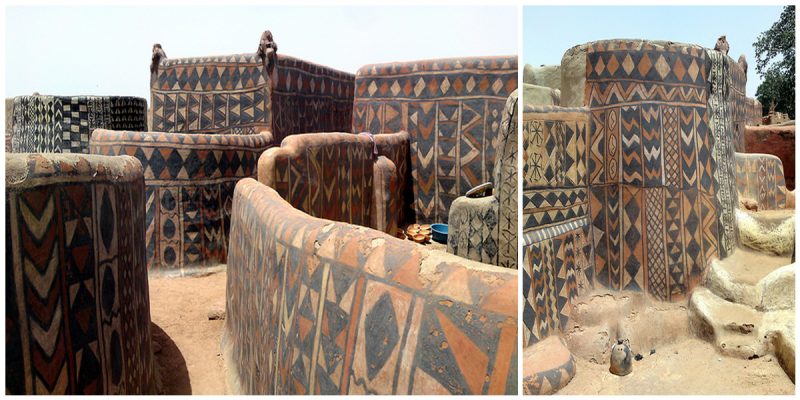In the south-western part of Burkina Faso, a landlocked country in west Africa, near the Ghanaian border, lies a small, circular village of about 1.2 hectares, called Tiebele. Set in the heart of Kassena country, Tiebele is famous for its sukhala or colorful windowless traditional houses. It is inhabited by people of Kassena, who first settled the region in the 15th century, the oldest ethnic group in Burkina Faso.
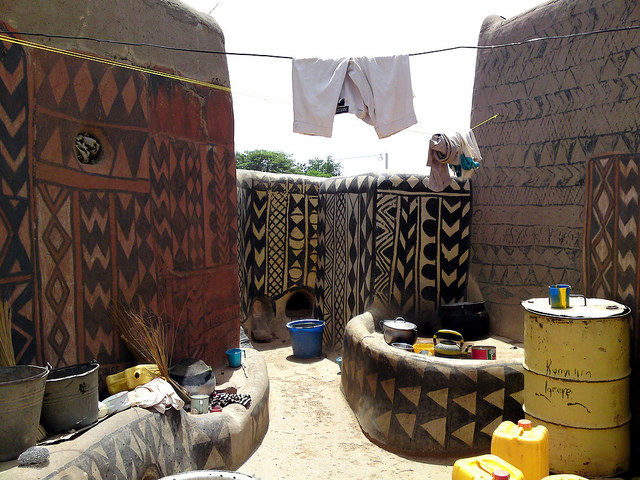
Kassena is a stunning example of people using their natural resources to express their rich culture. They decorate their homes by painting intricate designs on the exterior walls of their houses, using colored mud and chalk. Some of the most elaborately decorated houses, however, are not actually living quarters but mausoleums for the dead. Photos: Maarten van der Bent/Flickr
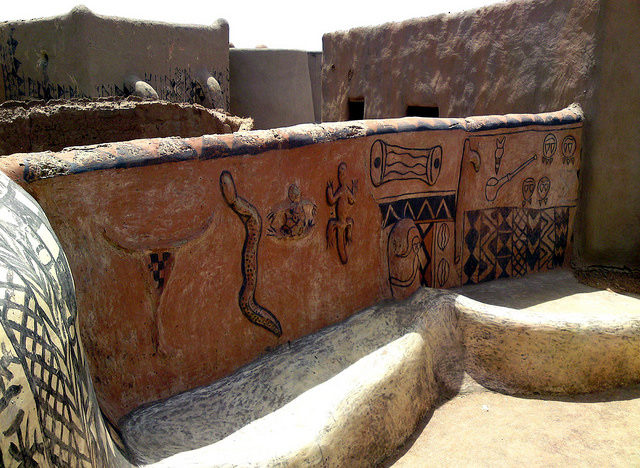
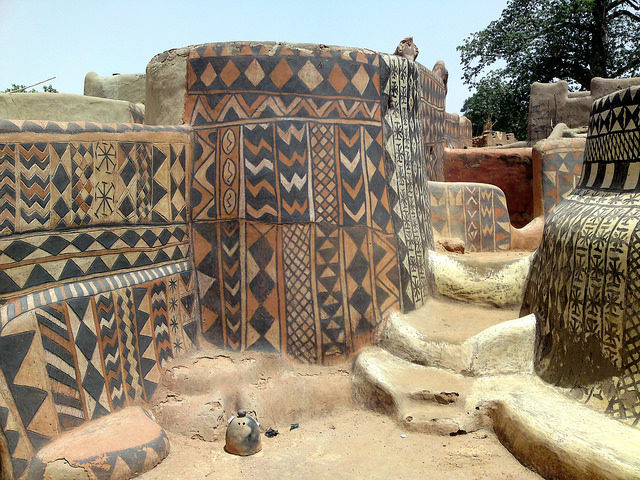
The houses are ornamented with incredibly precise and delicate folklore patterns and each painted house has many different geometrical and illustrative drawings. Wall decorating is always done by the Gurunsi women and it’s very ancient practice that dates from the sixteenth century AD. The colors used are black, white and red, made using local natural materials such as clay, kaolin, and coal.
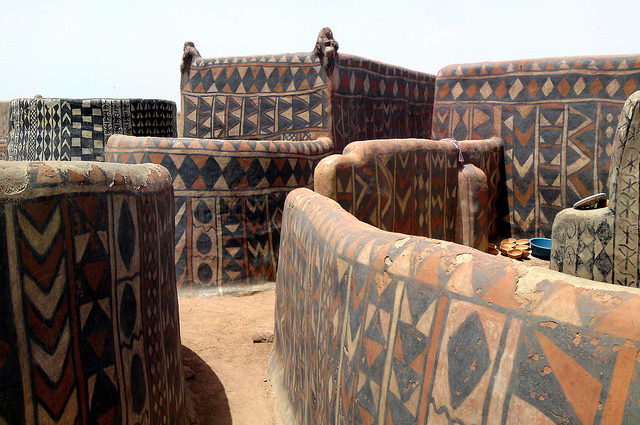

Tiébélé’s houses are built with defense in mind, whether that is against the climate or potential enemies. The doors are small to offer protection and there are barely any windows.
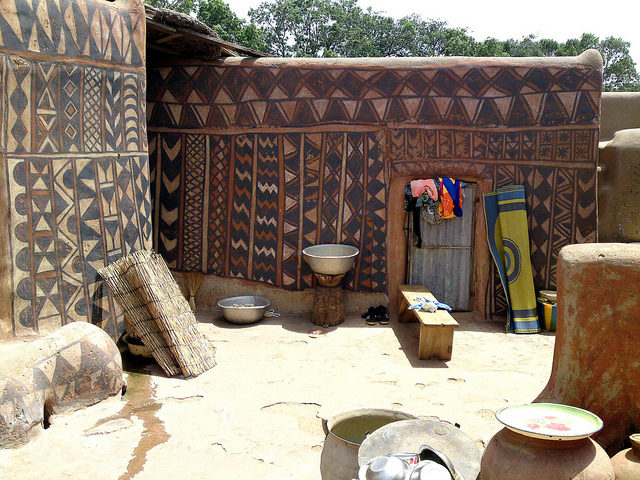
African architecture is close to nature. The construction is made with abundant resources found on the site that can be re-applied endlessly. After a house is built, the person that is going to live in it first waits for two days, and if a lizard walks in the house it is considered a good house; if not, the house is destroyed.
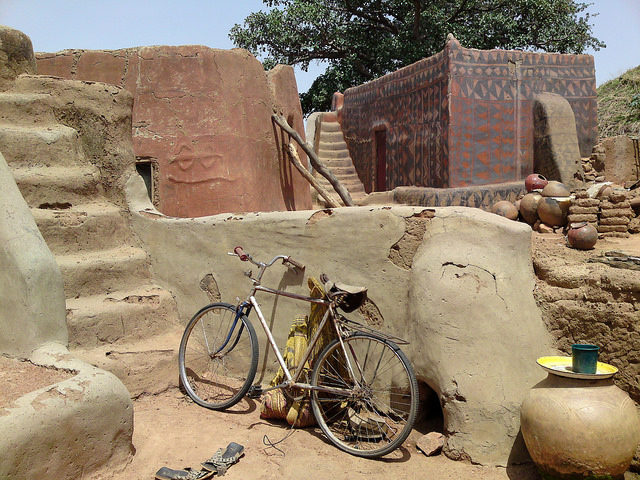
The small village faces challenges to sustain the integrity of its structures. There is an interest in developing the site as a cultural tourism destination to generate economic resources for conservation.
